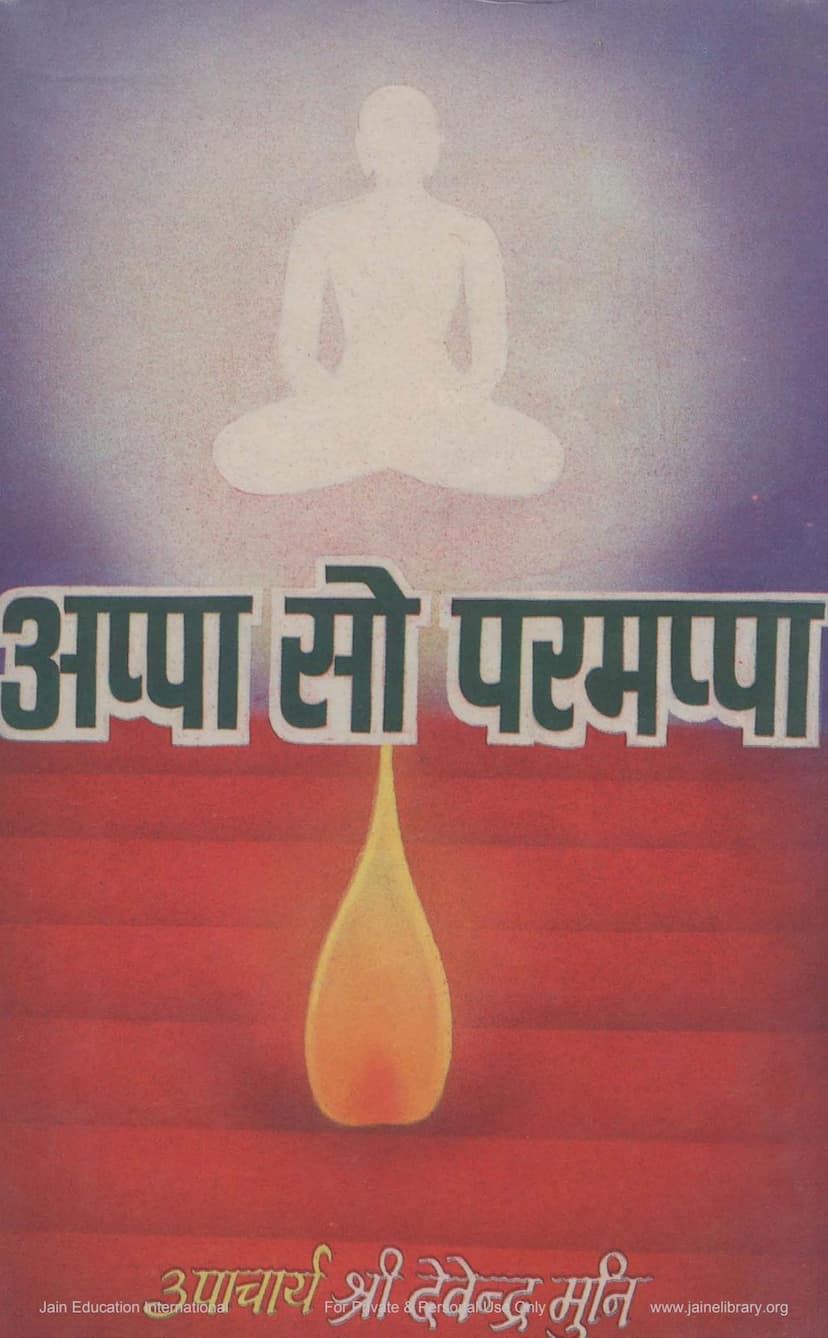Appa So Parmappa
Added to library: September 1, 2025

Summary
"Appa So Parmappa" (The Self is the Supreme Self) by Acharya Shri Devendra Muni is a profound exploration of Jain philosophy, aiming to guide the reader towards the realization that the soul (Atma) is inherently divine and can attain the state of the Supreme Self (Parmappa). The book, published by Shri Tarak Guru Jain Granthalay, Udaipur, delves into the core tenets of Jainism concerning the nature of the soul, its potential for ultimate liberation, and the path to achieve it.
The central theme, "Appa So Parmappa," asserts the fundamental oneness of the individual soul and the Supreme Soul. It posits that the soul, in its essence, is identical to the divine, possessing infinite knowledge, perception, bliss, and power. The book clarifies that the soul's current state of bondage and suffering is due to ignorance, attachment, and aversion, which veil its inherent divine nature.
Acharya Devendra Muni draws parallels from ancient stories, such as the lion cub raised among sheep, to illustrate how the soul, due to ignorance and external influences, fails to recognize its true self, perceiving itself as weak and limited like a sheep, despite being inherently powerful like a lion.
The text emphasizes that the journey from the individual soul to the Supreme Self is not about becoming something new, but about uncovering and realizing what the soul already is. This process involves shedding the karmic layers that obscure its true nature. The book likens this to the alchemical process of transforming base metal into gold, highlighting that while seemingly simple, the spiritual transformation requires a long and arduous process of purification through 'Bhavana' (meditative contemplation or inner attitude).
The author extensively references ancient Jain texts and the wisdom of revered spiritual leaders and philosophers like Haribhadra Suri, Anandghan, and Yashovijayji, whose insights further illuminate the soul's potential and the path to its realization. The book systematically discusses various aspects of the soul, including its existence, true nature, the means to discover and realize it, the relationship between the soul and the Supreme Self, the path to becoming divine, and the qualifications required for this ultimate attainment.
"Appa So Parmappa" highlights the liberating message of Jainism, which places the responsibility for spiritual evolution squarely on the individual's efforts. It stresses self-reliance and self-realization through right faith, right knowledge, and right conduct (Ratnatraya) as the means to transcend karma and attain the highest spiritual state. The book contrasts this with philosophies that rely on external grace or divine intervention, emphasizing the Jain principle of self-effort as the primary driver of spiritual progress.
The author explains that the concept of the soul and its potential to become God is not mere dogma but a scientifically verifiable truth through inner experience and realization. The text encourages readers to embark on the spiritual path with earnestness and diligence, assuring them that by understanding and living according to the true nature of the soul, they can indeed achieve the state of Parmappa.
The book also addresses the perceived difference between the ordinary soul and the liberated soul (Parmappa) by differentiating between the ultimate reality (Nischay Naya) and conventional reality (Vyavahar Naya). While in essence they are one, practically there is a vast gulf due to accumulated karma, which can be overcome through dedicated spiritual practice.
In essence, "Appa So Parmappa" is a comprehensive guide for self-discovery and spiritual elevation within the Jain tradition, offering a profound understanding of the soul's inherent divinity and the practical path to realizing its ultimate potential.